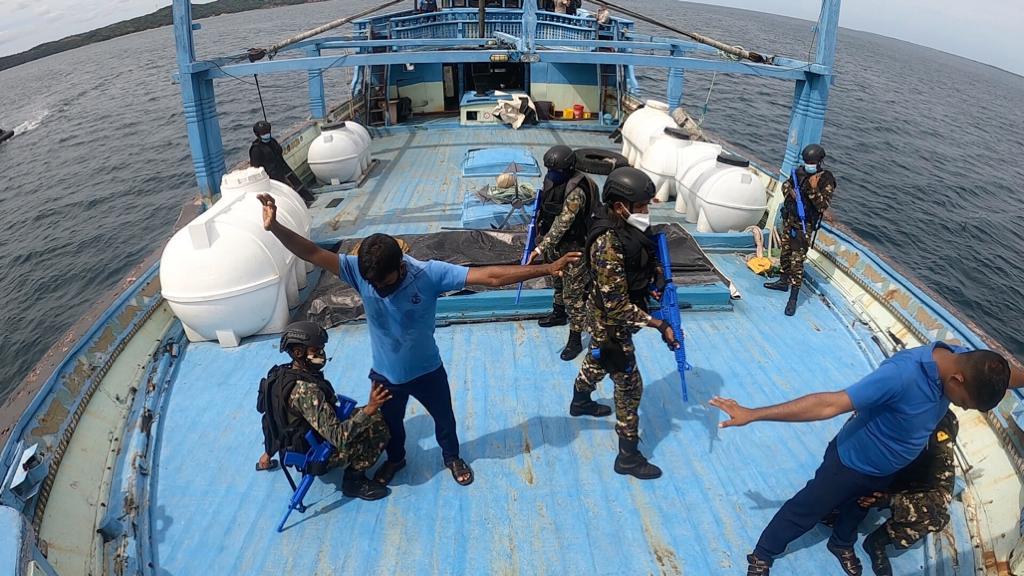
As part of the Blue Justice Initiative funded Blue Enforcement project, the UNODC Global Maritime Crime Programme (GMCP) conducted a Fishing Vessel Boarding Operations (FVBO) course at the maritime law enforcement training centre in Trincomalee, Sri Lanka, between 10-20 May.
The two week course had a total of twenty participants, one of them a female student, from different maritime law enforcement agencies from the Maldives and Sri Lanka, including the Maldives National Defence Force Coast Guard, the Maldives Police, the Sri Lankan Navy, the Sri Lankan Coastguard and the Sri Lankan Ministry of Fisheries and Aquatic Resources Development.
The first week was a mixture of theory-based training and practical sessions. The second week was predominantly practical, concentrating on boarding techniques, developing standard operating procedures in tackling illegal fishing, refining evidence handling and utilizing theory and practical skills learned during the previous training week.

The second week also included the new UNODC Trauma Casualty Care (TCC) course module, specifically designed for Visit-Board-Search and Seizure courses. The practical sessions covered a range of boarding scenarios including compliant, non-compliant, unopposed, and opposed. Such FVBO courses allow for inter-agency cooperation while also working to improve maritime law enforcement skills so that participants are enabled to tackle fisheries crimes more effectively.
Due to strict COVID-19 measures in place, the course could not receive external visits for the final sea exercise and closing ceremony. Instead, the Norwegian Ambassador to Sri Lanka and the Maldives and the Maldivian Deputy High Commissioner to Sri Lanka, together with the Deputy Head of the GMCP recorded video messages to the students which were screened at the course certificates ceremony.
In her speech, the Norwegian Ambassador, Trine Jøranli Eskedal, underscored Norway’s dedication to address organized fisheries crime on a global scale and expressed the importance of the initiatives such as the Blue Enforcement training programme:
“Training programmes like this FVBO course help to improve the institutional capacity of national Governments and further ensure that those who work for maritime law enforcement agencies are supported to understand what fisheries crime is, and that they have the means to collect evidence and the skills to present that evidence through the right channels.”
The Blue Enforcement project is implemented jointly between UNODC GMCP and the Container Control Programme (CCP).